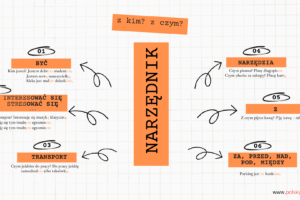
How Difficult is Polish?
Table of Contents
Polish can be a challenging language to learn; however, with dedication, practice, and the right resources, it is definitely possible to learn Polish. The amount of time it takes to learn Polish can vary depending on several factors, including the learner’s native language, their level of dedication and effort, and the resources and learning methods employed.
How difficult is Polish for English speakers?
According to the US Foreign Service Institute (FSI), which provides language training to US government employees, Polish is classified as a Category III language, indicating that it is considered moderately difficult for English speakers to learn. The FSI estimates that it takes approximately 1100 hours of study to reach proficiency in Polish for full-time students (25 hours per week).
Comparatively, it takes only half this amount (600–750 class hours) to learn languages such as French, Italian, or Spanish, but twice as much (2,200 class hours) to learn Chinese or Arabic. We can therefore conclude that, for an English speaker, Polish may not be the easiest language to learn, but it is certainly not the most difficult either.
How difficult is Polish for Slavic language speakers?
As Polish belongs to the Slavic language family, it is generally considered easier to learn for those who already know another Slavic language. Czech and Slovak speakers are likely to find Polish the easiest to learn, as these languages share the greatest degree of similarity with Polish—to the extent that basic communication between speakers is possible without any formal study. Other Slavic languages, such as Ukrainian, Russian, and the more distantly related Croatian, also share certain similarities with Polish, particularly in terms of vocabulary.
However, differences in grammar, pronunciation, and even the alphabet can still pose challenges for learners of these languages. The similarities between languages can sometimes work against language learners, as there may be numerous false friends and misleading similarities that can lead to difficulties. This can create a false perception where learners may assume that because they understand a particular word or phrase, they will also be easily understood by native speakers.
Why is Polish considered to be difficult?
Polish can be considered a difficult language for a few reasons. Here are some factors that contribute to its complexity:
GRAMMAR
Polish has a complex grammar system, with seven cases and three genders. This means that every noun, pronoun, and adjective has multiple forms depending on its function in the sentence.
GRAMMATICAL CASES
The important aspect of Polish grammar is the system of grammatical cases, which modify nouns, pronouns, adjectives, and other words to indicate their function in a sentence. Polish has seven cases with complex sets of endings that differ based on grammatical gender and the number of a noun.
To jest kot. (It is a cat).
Mam kota. (I have a cat)
Idę na spacer z kotem. (I’m going for a walk with cat)
We have 3 forms here – kot, kota, kotem – all of them mean cat, the form differs based on the context or verb that is present in the sentence.
| Polish name | English name | singular | plural |
| Mianownik (kto?co?) | Nominative | kot | koty |
| Dopełniacz (kogo?czego?) | Gentivie | kota | kotów |
| Celownik (komu?czemu?) | Dative | kotu | kotom |
| Biernik (kogo?co?) | Accusative | kota | koty |
| Narzędnik (z kim?z czym?) | Instrumental | kotem | kotami |
| Miejscownik (o kim?o czym?) | Locative | kocie | kotach |
| Wołacz (o!) | Vocative | kocie! | koty! |
GRAMMATICAL GENDERS
In Polish, every noun has a grammatical gender, which means that it is classified as masculine, feminine, or neuter. The gender of a noun is not necessarily related to the natural gender of the object it represents.
For example, the word kobieta (woman) is feminine, while the word pan (mister) is masculine, but the word for child dziecko is neuter.
The gender of a noun is important because it affects the forms of the adjectives, pronouns, and verbs that are used with it. For example, if you want to say “the big cat” in Polish, you would use the adjective duży (masculine form) as the noun “cat” is masculine. If the noun would be feminine (for example torba) we would use the feminine adjective duża, and duże neuter form if the noun is neuter for example dziecko.
Take a look at our article about Polish grammatical gender which explains in more detail what gender is, how to recognize it, and why it is really important in Polish: Noun gender on PolskiPlus
CONJUGATION
Conjugation in Polish refers to the process of changing the form of a verb to match the subject of a sentence, as well as to indicate the tense, aspect, mood, and voice of the verb. Polish verbs are conjugated to reflect the grammatical person (I, you, he/she/it, we, you plural, they), number (singular or plural), and gender (masculine, feminine, or neuter) of the subject.
In Polish, the conjugation of a verb can be quite complex because it involves adding various suffixes and prefixes to the stem of the verb, depending on the tense, aspect, and mood being used. For example, the present tense of the verb “to speak” in Polish is “mówić”, which is conjugated differently depending on the subject:
- Ja mówię (I speak)
- Ty mówisz (you speak)
- On/ona/ono mówi (he/she/it speaks)
- My mówimy (we speak)
- Wy mówicie (you plural speak)
- Oni/one mówią (they speak)
PRONUNCIATION
Polish has a number of sounds that are not present in English, such as nasal vowels ( ą,ę), soft consonants (ś,ź,ć,ń, dź), but also very Polish letters like ł or ż.
Additionally, many Polish words have multiple consonant clusters that can be difficult to pronounce- for example, Świętokrzyska.
VOCABULARY
Polish has a large vocabulary with many words that are not derived from Latin or Germanic languages, which may be unfamiliar to English speakers (for example, kiełbasa).
SPELLING
Polish orthography can be complex, with many words containing consonant clusters that can be difficult to spell. There are letters in Polish that are pronounced the same, but written differently:
rz (rzeka) and ż (żona)
ch (chleb) and h (herbata)
ó (Kraków) and u (ulica)
Since those letters can no longer be differentiated by their pronunciation, there are rules in place to determine when to use certain letters. However, these rules can be quite complex, and even native speakers may find them challenging to navigate.
Why is Polish easy?
While there are reasons why Polish may be considered a challenging language to learn, there are also several aspects that make it relatively accessible. Unlike English, Polish has only three basic tenses. In addition, as an Indo-European language, Polish shares similarities with many other European languages.
Furthermore, English loanwords are commonly used in Polish vocabulary and are easy to recognise and remember (for example, ambitny – ambitious). Polish pronunciation is not overly complex, although there are occasional exceptions to the rules. Polish sentence structure is also more flexible than English, which makes it easier to form questions.
To jest kot. (Czy) to jest kot?
This is a cat. Is this a cat?
Why is it worth learning Polish?
Acquiring proficiency in Polish requires significant effort, time, and commitment, but the results are undoubtedly worthwhile. With over 50 million speakers worldwide, Polish is the most widely spoken West Slavic language. It is the official language of Poland and is spoken by substantial Polish diasporas in numerous countries. Learning Polish opens up opportunities to explore the fascinating Slavic world, and once proficient, learning another language from the same language family will undoubtedly become easier.
Learning Polish can be beneficial for both personal and professional reasons, such as improving cultural understanding, increasing job opportunities, and enhancing travel experiences. Moreover, Poland has a rich cultural heritage, and learning Polish can help you appreciate and understand it more deeply.
Overall, Polish is a beautiful language, and learning it can be a rewarding yet challenging experience that helps develop cognitive skills, improve memory, and enhance overall language awareness. In addition, Polish people generally have a positive attitude towards those who make an effort to learn their native language and highly value such attempts. With adequate resources, effective methods, and personalized courses, mastering Polish is undoubtedly possible, and the learning process can be a truly enjoyable and captivating adventure.




1 Comment
I am also learning Polish. The most important thing is to find a good teacher and everything will go smoothly